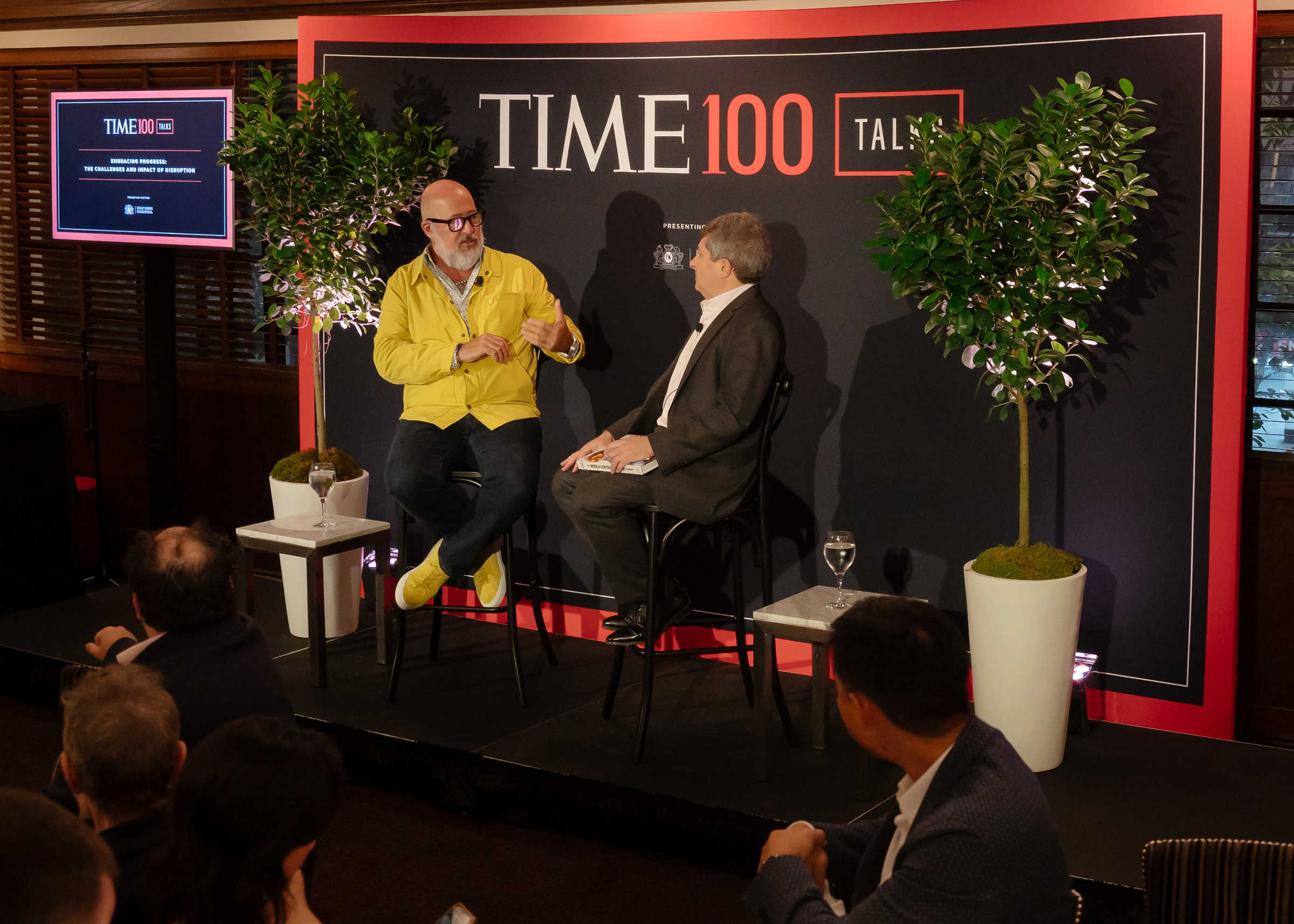
On the eve of the United Nations General Assembly, as 50 guests gathered for the latest TIME100 Talk to wine and dine at Aretsky’s Patroon in New York City, the topic of the night was hunger.
It’s an issue that affects more than 33 million people in the United States and as many as 1 in 10 people globally—and it’s personal to James Beard Award-winning chef and TV presenter Andrew Zimmern, the featured speaker for the event, Embracing Progress: The Challenges and Impact of Disruption, presented by TIME in partnership with Philip Morris International.
Zimmern, who says his own past struggles with addiction and alcoholism once led him to eat Thanksgiving meals provided by the Salvation Army, now uses his celebrity status to advocate for the fight against hunger—a problem he believes remains unsolved by lack of will more than lack of ability.
“We have the food,” Zimmern emphasizes, as well as the systems for distribution. Solving hunger in the U.S. is estimated to cost anywhere from $23 to $40 billion.
“The fact that we can do it and yet some people are making the choice not to prioritize that is an embarrassment,” he says. “I’ve used the word genocidal. And I’ve taken some flack for that. But when you look at the dictionary definition, if you actually are able to do it, but you’re making a choice not to—I think at a certain point, you have to start facing the fact that hunger is not something that anyone should have to deal with in this country in 2023, and frankly in any country in 2023.”
During the COVID-19 pandemic, when impacts to supply chains saw food prices skyrocket and millions were unemployed, Congress increased funding for Supplemental Nutrition Assistance Programs, or SNAP, and other relief programs, which helped the U.S. achieve in 2021 the lowest share of households with children experiencing food insecurity on record. But that funding was temporary and has come to an end, affecting some 41 million Americans.
While it’s incumbent on Congress to act, Zimmern told guests on Monday night that everyone can play a part. He encouraged seeing hunger firsthand by volunteering at shelters and talking about it to keep the issue at the forefront as a matter of “moral urgency.”
“It’s getting more people aware of what’s really going on,” Zimmern said. “If we use the word hungry all the time, it would increase the amount of shame that we have over not solving it—or the criminality over not solving it.”
And those kinds of conversations can happen simply over a shared meal, he added.
“I have never sat down to eat a meal with someone and got up understanding them less.”
More Must-Reads from TIME
- Introducing the 2024 TIME100 Next
- The Reinvention of J.D. Vance
- How to Survive Election Season Without Losing Your Mind
- Welcome to the Golden Age of Scams
- Did the Pandemic Break Our Brains?
- The Many Lives of Jack Antonoff
- 33 True Crime Documentaries That Shaped the Genre
- Why Gut Health Issues Are More Common in Women
Contact us at letters@time.com